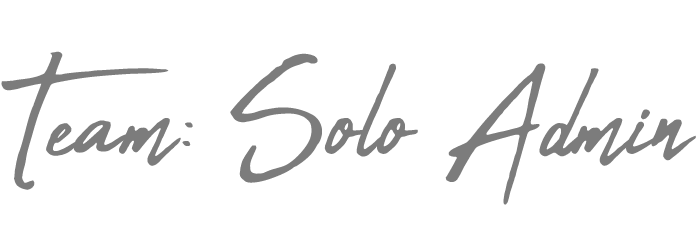Last week we discussed the difficulties admins can experience during annual performance evaluations. However, I didn’t get the opportunity to discuss the specific actions you can do to put your best foot forward. This week’s blog will cover the performance evaluation tips and strategies that help me present myself well. For all admins do, we need to make sure that we are recognized and acknowledged, not just by ourselves, but by our managers through our performance evaluation.
S.T.A.R. Moments
What’s a S.T.A.R. moment? It stands for “Something They’ll Always Remember.” These moments should provide great examples of your work within the past year that you hope to highlight in your review. Using Trello, I set up a “Performance Evaluation” board to help me remember my important moments throughout the year.
People often use the S.T.A.R. strategy in presentations and interviews for a reason, as it is an effective tool that can help you stand out.
When to add a STAR moment to your board?
Whenever I receive positive feedback or a compliment from my manager, I make a note of it on Trello. I simply have a card titled “Manager’s positive comments”, and add it as a checklist item. On the card, I copy the compliment and what it was referring to and the date.
Over the course of a year, a manager might not recall all the outstanding work you’ve done. Recalling these examples of excellent work throughout the year during your evaluation is a great way to jog their memory.
I also add any project that I found particularly difficult, time-consuming, or labor intensive. As I’m sure you’re already aware, these instances occur often when you least expect it and can really negatively affect your productivity.
Hopefully, by the time you do your performance evaluation, the matter is resolved. If it is resolved, then you have a wonderful opening to demonstrate how you overcame a problem. If it isn’t resolved, you have the choice to include it or not. There’s always next year.
Lastly, if I complete/create anything I’m proud of. I jot it down. When you believe in your work, it helps you feel more confident about your contributions in your review. It also shows that you genuinely care about the quality of your work, and take pride in yourself.
Then I forget about every last one of the moments until evaluation time.
Timeline of Progress
Even if your company doesn’t ask you to set/write down goals for yourself, do it anyway. Setting a goal at the beginning of the year helps to demonstrate you had a plan, and you followed through.
It’s not just a gauge of progress for management, it’s also a wonderful tool for you to assess your own progress. Sometimes our managers forget about what all we’ve accomplished, and simply need a reminder of your professional awareness and foresight to get goals. This is a great topic to discuss further during your evaluation.
It also gives the ability to offer an opportunity for humility and accountability if you were unable to finish a goal. By being upfront about why you weren’t able to complete a goal, it shows integrity, honesty, and self-introspection…unless you’re just blaming other people (which is NOT a good look).
Go Above and Beyond
Admins are uniquely talented individuals whose background help them to be even more valuable. Don’t lose that.
Every year, I try to learn or do something that doesn’t directly relate to my current role. For example, taking a writing class from LinkedIn, or give an example of how you implemented a new tool to help office productivity or company outreach when you “used them as a guinea pig.” 😉
Sometimes, I even included books I’ve read, additional company training, or external related conferences/workshops.
All of this shows dedication, effort, and an openness to new ideas that are positive not just for you but also for the organization.
Watch Your Tone
Depending on many factors like your manager, the work environment, and your perspective, the tone in your evaluation could send the wrong message despite what you’ve typed or said.
Regardless of your history, experience, or manager, it is important to remain in control of your mouth, facial expressions (I suck at this. My face is a traitor!), and emotions.
I know this might be a taller order for some than others, depending on your situation. However, if you enter your performance evaluation defensive, angry, or indifferent, it can have a major impact and might even supersede all of your hard work throughout the year.
Here are the 3 phrases I keep in mind before, during, and after my performance evaluation:
- I’m not perfect, but I did my damn best. I couldn’t have offered anymore, and wouldn’t have tolerated any less.
- The manager is not perfect. You hope it is positive, but it might not be. If you’re unclear, ask. Don’t attack and blame. Listen. Be the person you’ll be proud of later. Consider their constructive (hopefully) criticism and keep what you want and disregard the rest.
- If you don’t know what to say, say nothing. You can always request to talk about it again later, if you want.
Even if you hate your job, being all out negative about everything doesn’t help during this time. This is about you and your performance. Take the opportunity to shine. Being negative about everything will make people think your judgment is too biased and maybe even irrational.
I hope you enjoyed my tips and strategies for your performance evaluation. It can be tough, but these tips and strategies should help to give you, at minimum, a decent starting point to help you craft your own performance evaluation experience.
If you enjoyed my content, please join my monthly email list!


